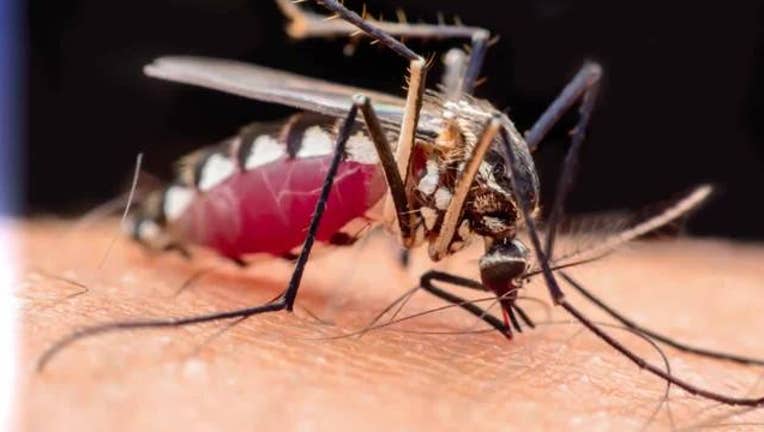Potentially fatal mosquito-borne virus detected in Delaware

Dover, Del. - A potentially deadly mosquito-borne virus has been detected in Delaware, state officials said.
Eastern Equine Encephalitis, a rare mosquito-transmitted illness, is considered to be worse than West Nile Virus.
The illness, referred to more succinctly as EEE, was found in sentinel chickens the state monitors for mosquito-transmitted illnesses. Delaware has 20 sentinel chicken coups located throughout the state.
Four chickens from three locations tested positive for EEE, health officials said. The affected stations are located in New Castle County, east-central Kent County and southeastern Sussex County.
Health officials say symptoms of EEE do not appear until 4 to 10 days after a bite. The most severe cases of the illness include an inflammation of the brain and a sudden headache. High fever, chills and vomiting can also accompany the illness.
Around a third of severe cases lead to death and those who survive can experience brain damage and other long-term health complications. Those below 15-years-old and above 50-years-old are at the greatest risk for the illness.
State health officials urge residents in affected areas to use bug repellent with DEET whenever outdoors and to shield skin with long-sleeved clothing. They also warn residents to avoid known highly populated mosquito areas and to stay indoors during peak mosquito hours like dusk and dawn.
The state also suggests residents remove items on their property that collect water, such as uncovered trash cans, stagnant bird baths, upright wheelbarrows, or clogged gutters.
The Mosquito Control Section of the Delaware Department of Natural Resources and Environmental Control will continue to monitor areas where EEE was detected. Precautionary options include spraying and fogging with a spray truck.

